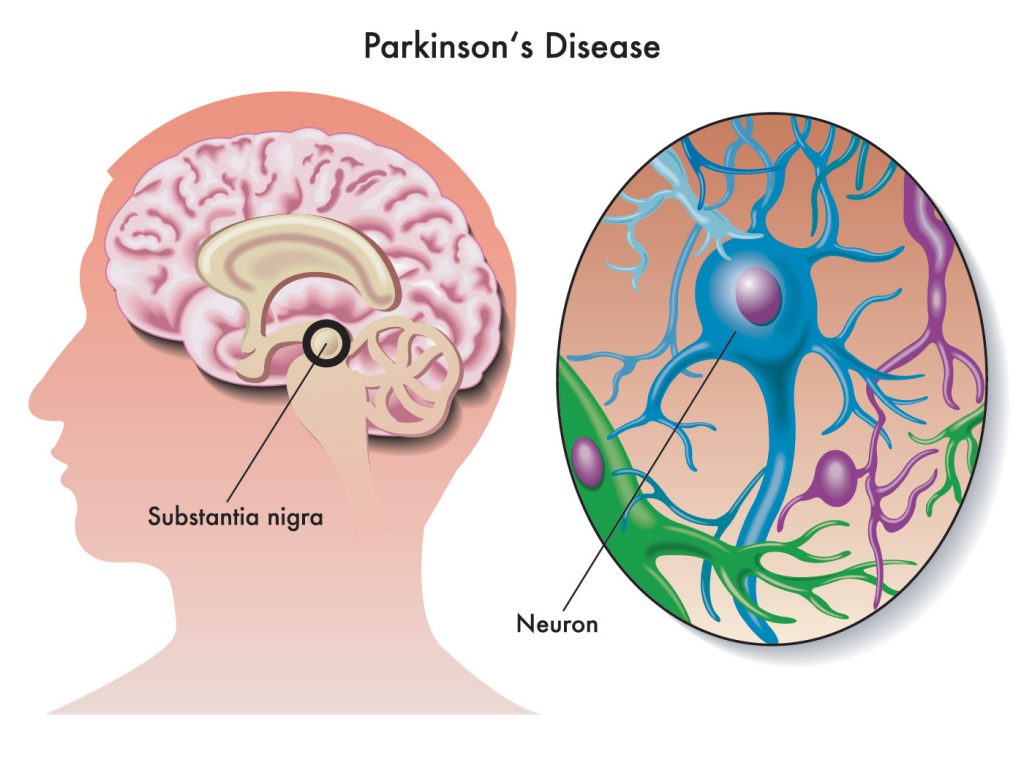When, two years ago, the FDA reviewed the Parkinson’s drug, Nuplazid, lead medical reviewer Dr. Paul Andreason issued grave warnings about the potential risks. During the review process, he observed that those taking the actual medication were suffering extreme side-effects (including death) twice as much as those taking placebos. In addition, he noted, he wasn’t sure the potential public health benefits outweighed the risks, as is necessary when approving a drug as a “breakthrough therapy” – a relatively new designation meant to speed up the FDA approval process for medications that could substantially improve the lives of seriously (or terminally) ill patients.
Tyne’s Plea
A lengthy CNN report published in April outlined the trials and tribulations of the process, highlighting the story of one Brendan Tyne whose mother suffers from Parkinson’s disease psychosis and as a result “thinks there are people in the house and animals [that] are trying to get her.”
Nuplazid – designed to treat such mental conditions – emerged as a potential savior for Tyne. He told the FDA panel about his two young children and his desire for them to know their grandmother: “If nothing is done to bring her back to some semblance of normalcy, my children will never remember their grandmother for who she is.” He continued, “Please, I beg you, do not deprive my children and their grandmother of experiencing that love.”
Hesitant Approval
The drug was approved in a 12-2 vote, with a number of committee members expressing ambivalence on the matter. Several members figured any drug was better than no drug, as no other medication exists for the treatment of Parkinson’s disease psychosis. At least one member suggested a broader study “so we can ensure that, once it goes into real-world use, that the benefits will outweigh the risks.”
Adverse Events
The results have not been encouraging. Tyne’s mother’s condition did not improve; rather, it severely worsened. As people purchased the drug – to the tune of $125 million – nearly 1,000 adverse event reports poured into the agency. It seemed the drug was having the opposite effect for a lot of people. One non-profit organization found that 244 deaths had been linked to Nuplazid, leading one scientist associated with the non-profit to call for a more substantial review of the drug.
Gottlieb’s Hearing
It would appear that a review has been commenced. According to a recent CNN report, FDA Administrator Scott Gottlieb assured Congressional leaders at a budget hearing that the agency was “tak[ing] another look” at the medication and that a review had begun several weeks prior. Though the drug has been linked to a number of adverse events, it cannot be said for certain that Nuplazid was the main culprit in those cases. However, the data surrounding those events can be used by the FDA to take decisive action. For instance, the agency might enforce the use of a more pronounced warning label – known as a Black Box Warning.
Suspect
For now, the Parkinson’s medication has not been definitively named the cause of the deaths, but it has been labeled a “suspect” drug. According to the FDA, many of the adverse event reports have involved elderly patients who have been suffering from the disease for a long time. In addition, many of the patients were diagnosed with other conditions and were taking other drugs in combination with Nuplazid.
Congressional Pressure
Despite the FDA’s caveats about the age and condition of the patients, Representative Rose Delauro (a Democrat from Connecticut) pressed Gottlieb on the agency’s actions – or lack thereof. “How many more adverse events do we have to have reported, and how many people quite frankly have to die? Why does the industry always take precedence over public health and safety?” she asked the cabinet member.
One might wonder whether the “breakthrough therapy” designation – which has helped expedite the approval process for over 200 drugs – will be subject to further criticism.

Leave a Reply